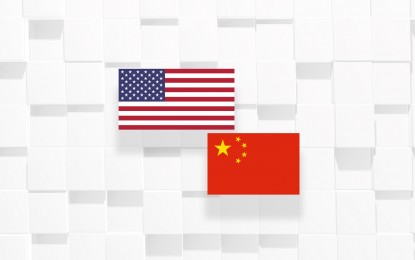
BANGKOK – The economies of both the Philippines and Thailand are being dragged by the trade rift between Washington and Beijing, officials from both countries said.
Philippine Trade Secretary Ramon Lopez told reporters here on Friday that the US-China trade war has an impact on the economies of Asean-member countries, such as the Philippines and Thailand.
He said most Asean countries “suffered a decline in their exports.”
“There is a slowdown caused by the US-China trade tensions. We hope the issue to be tempered down,” he said.
While Lopez did not provide a figure on the impact of the trade war between the two giant economies on the Philippines, Thailand's Ministry of Commerce said its export to China fell by 8.1 percent year on year. This fall in shipments resulted in a deficit of US$1.45 billion in April alone, it reported.
Lopez said the remedy for this is for Asean members to find other trading partners not involved in the trade dispute.
“Asean should be prepared and have better trading performance with other countries not involved in the US-China trade issue,” he said.
In the case of the Philippines, he said it continues to strengthen its partnership agreements with such countries as Japan and hopes to develop a new Free-Trade Agreement with South Korea soon.
For its part, Thailand said it was pinning its hope on the completion of the Regional Comprehensive Economic Partnership (RCEP), considered to be the biggest trade deal between Asean countries plus six other nations.
“For this reason, completing the RCEP negotiations is Thailand’s top economic priority as Asean chair. It is our toughest challenge and if successful, it will be our biggest achievement,” Auramon Supthaweethum, the director general of Thailand's Department of Trade Negotiations under the Ministry of Commerce, had told a Thai newspaper.
She illustrated how huge the potential is by saying that the combined gross domestic product of RCEP members amounts to about 28 percent of the global GDP and at least 30 percent of the value of global trade.
Auramon said the RCEP negotiations might be completed in November and each country will have to ratify it.
She said she was hoping that the RCEP will be officially enacted in 2020. (PNA)
